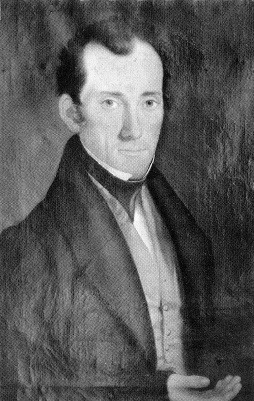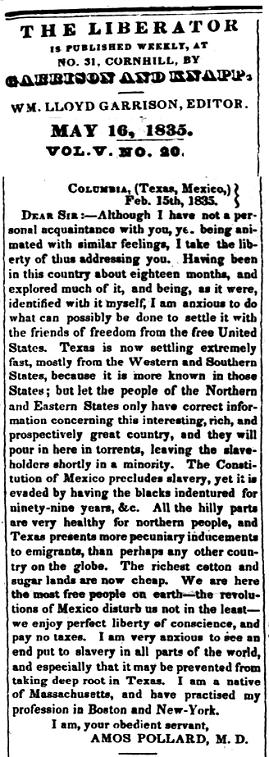Nathan H. Haller: From Slave to Legislator
on Wednesday, September, 05 2018 @ 09:13:00 am (675 words)
In Brazoria County history [ 54411 views ]
Born into slavery in Charleston, South Carolina, on 8 July 1840, Nathan H. Haller (1840 - 1917), son of Joe Haller, was a Brazoria County resident who represented Brazoria and Matagorda counties in the House of Representatives of the Twenty-third (1893) and Twenty-fourth (1895) Texas Legislatures.
Haller was brought by his owner (whose name is not now known) to Walker County, Texas, probably before 1860. In the early 1860's, he married Paralee Jordan of Huntsville. They had two sons, Stonewall Jackson (1863) and James (1866).
Following emancipation Haller farmed and, as a member of the Republican Party, entered politics, becoming a county commissioner of Walker County. Following the death of his wife, Nathan married Matilda Ann Butcher (daughter of Dennis Butcher). The couple had three children: Joseph J. (1869), Monroe D. (April 1870), and Jemima (4 May 1872).
In 1880 the Haller family was living in Walker County. The federal census for that year listed Nathan as a farmer. On the 16th day of August 1888, Charles Tunstall and his son W. W. sold to "N. H. Haller, his heirs and assigns, of the County of Brazoria and State of Texas, all that certain tract or parcel of land situated in the County of Brazoria in the State of Texas, Known and designated on the map or plan of the town of Brazoria as out Lot no (14) fourteen, and contains at least (11) eleven acres of land...." Over the ensuing decade, Nathan was involved in the buying and selling of several lots in the towns of Angleton and Velasco.
In the election of 1892, Haller was elected to represent Brazoria and Matagorda counties in the Texas House of Representatives. Installed in office on 10 January 1893, one of his first actions was to introduce "An Act [HB469] to establish, put in operation, and maintain a Branch University for the Colored Youth of Texas," read the first time 8 February 1893. He sat on the following committees in the 23rd regular session: Labor; Penitentiaries; and Roads, Bridges and Ferries.
In the election of 1894 Haller was defeated in a close race with R. C. Duff. On 14 February, 1895, the House Committee on Priviliges and Elections ruled that the Brazoria county judge had not counted certain votes that had been cast in Matagorda County which would have given Haller a margin of victory of fifty votes. The same day the Speaker requested that Mr. Haller come forward and take the oath of office that was then in due form administered by the Chief Clerk. By this ruling, Nathan Haller became one of the final two blacks (the other being Robert Lloyd Smith of the Twenty-fourth and Twenty-fifth Legislatures) to serve in the Texas House of Representatives between near the end of the 19th Century and 1966. In the regular session of the 24th Legislature, Haller served in the following committees: Counties and County Boundaries; Federal Relations; Penitentiaries; and Stock and Stock Raising.
Though Haller's bill to establish a branch of the University of Texas for African-American students was ultimately unsuccessful, he also dedicated himself to defeating efforts to divide Brazoria County which he perceived would dilute the black vote.
Following his governmental service, Nathan continued residing in Brazoria County where in 1900 he was working as a day laborer. By 1902, he was a resident of Houston, Harris County, Texas, the city directory listing him at 1718 Webster Avenue. The 1903 directory listed him residing on the east side of La Branch between Holman and Alabama avenues. The 1905 showed him at the northeast corner of La Branch at Alabama. The 1907 listed him as a laborer residing on the east side of Dowling between Elgin and Holman avenues. Houston city directories for 1911, '13, '15 and '17 listed him as living at 3219 Dowling Street. His occupation given on the 1911 was "gardener," and the 1913 directory as a laborer. Thereafter, no occupation was listed.
Nathan H. Haller, who some listings refer to as Nathaniel, died at his home (3219 Dowling) in Houston, Texas, on 27 February 1917. Cause of death was given on his death certificate as "Paralysis," "Contributory[:] "Malaria." He was buried 1 March 1917 at College Memorial Park Cemetery, where according to entries at Findagrave.com his wife, Ann, and son Joseph J. Haller are also interred.




